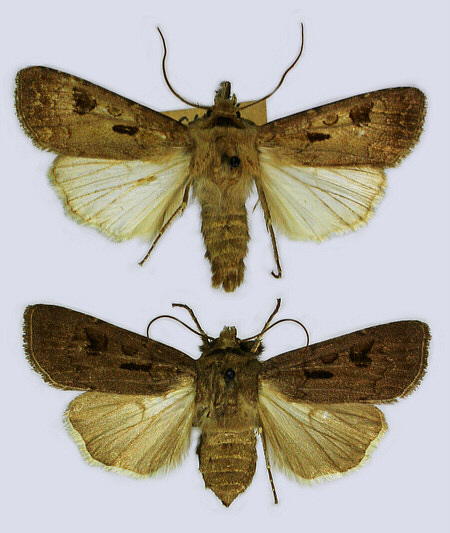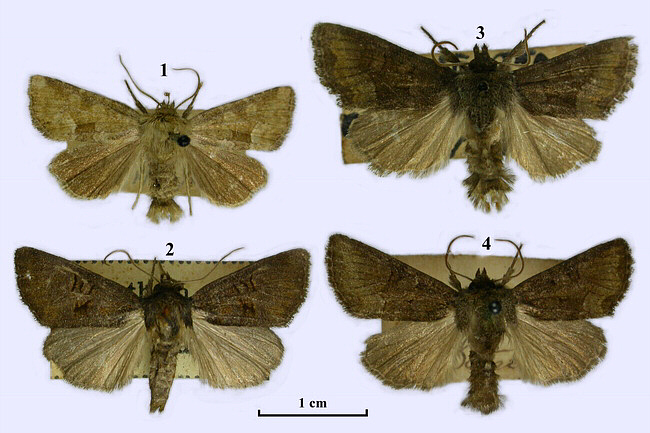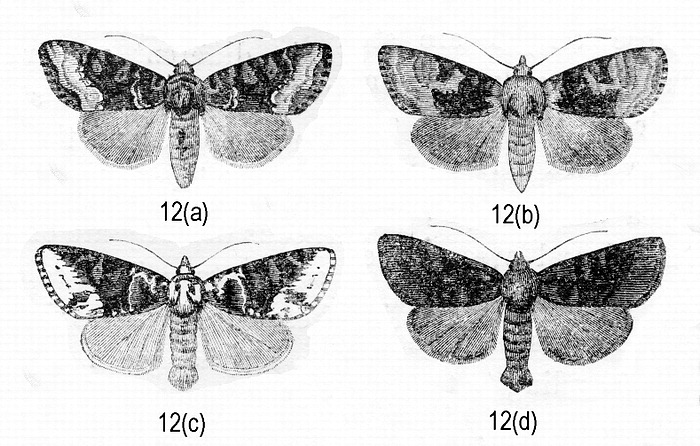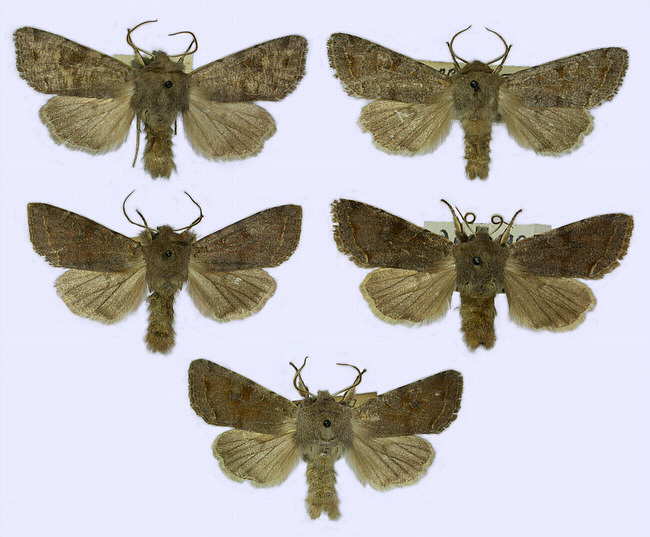

|
Insects of Britain and Ireland |

Agrotis exclamationis (Heart and Dart)).
Agrotis exclamationis (Heart and Dart), male (above) and female. The dark variants may represent rural (non-industrial) melanism, being commonly encountered in both sexes and in both natural and polluted habitats.
Leek, N. Staffs., 1952 (L. Watson).

1, Oligia fasciuncula (Middle-barred Minor); 2–4, probably all Oligia strigilis (Marbled Minor, melanics: identifications unreliable without examining the genitalia).
Only melanic individuals tentatively referred to O. strigilis (e.g., 3 and 4) were seen in the Leek district (habitats rural, but only 10 and 30 miles respectively from Stoke-on-Trent and Manchester) during the decade 1948–1958, no normal specimens being seen; probably reflecting drift to predominant industrial melanism from the pre-existing rural melanism described and illustrated by Newman in 1869 (see adjoining image).
1, Leek, Staffs, July 1956; 2, Trentham, Stoke-on-Trent, July 1951 (R.G. Warren); 3 and 4, Leek, June 1957 (L. Watson).>

Oligia strigilis (Middle-barred Minor): variation as depicted by Newman in 1869, including melanism.

Orthosia incerta (Clouded Drab).
Specimens all from the same deciduous woodland locality at Leek, Staffs. (near Stoke-on-Trent), during the decade 1948–1958, when light individuals were outnumbered by melanics. The proportions perhaps reflecting drift to industrial melanism from pre-existing rural melanism in a polymorphic species.
Ballington Wood, Leek, Staffs., 1948–1958 (L. Watson).
Revised 11 May 2019